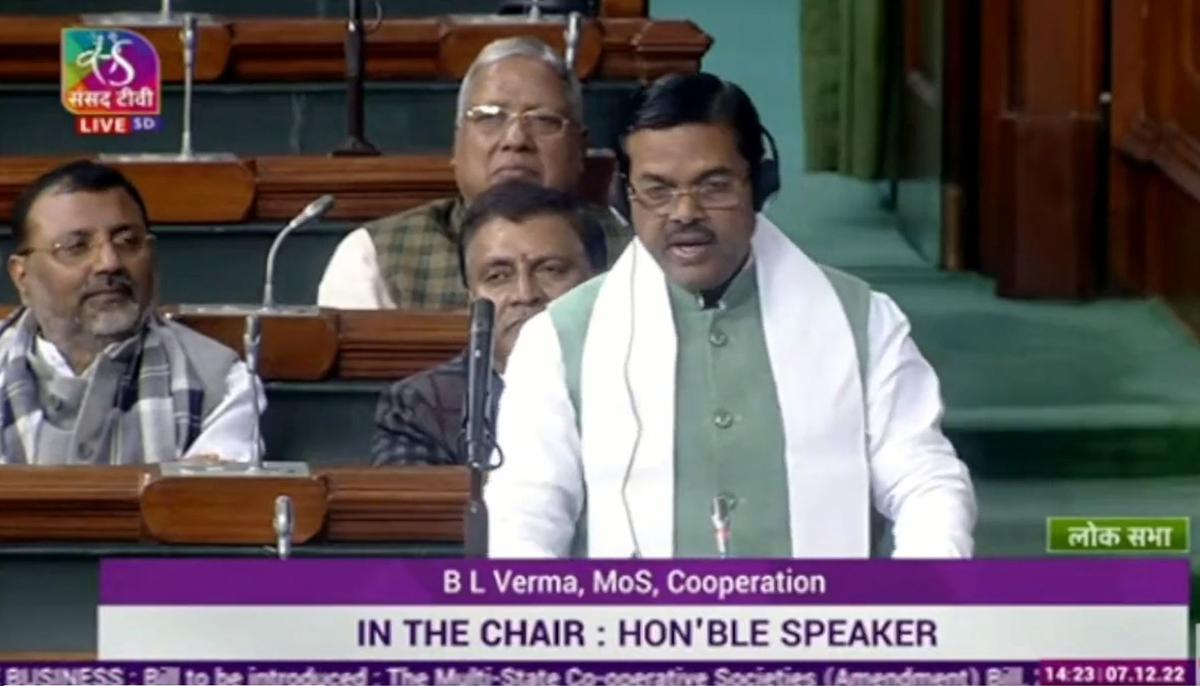
In order to increase transparency in the industry, the Multi-State Cooperative Societies (Amendment) Bill, 2022, was presented to the Lok Sabha.
MSCS Act, 2002
- Cooperatives are a state subject, but there are many societies such as those for sugar and milk, banks, milk unions etc. whose members and areas of operation are spread across more than one state.
- To regulate these cooperatives, the MSCS Act was passed.
- For instance, the majority of sugar mills in the areas near the border between Karnataka and Maharashtra get their cane from both states.
Multi-State Cooperatives
- They are registered under the MSCS Act since they derive their membership from two or more states.
- All the states in which they do business are represented on their board of directors.
- The law clearly states that no state government official can have any authority over these societies, and that the central registrar has administrative and financial control over them.
Why does the government plan to amend the Act?
(1) Central Registrar problems
- This society’s seamless operation was intended to be made possible by the central registrar’s sole authority, who also serves as the central cooperative commissioner.
- These societies can operate in various states thanks to the central Act, which shields them from intervention from state authorities.
- However, what was meant to make things go more smoothly has really made things more difficult.
- State registrars are responsible for exercising financial and administrative oversight over state-registered organisations through officers at the district and tehsil levels.
(2) A variety of safeguards
- As a result, a sugar mill must first obtain approval from the sugar commissioner before expanding or purchasing new equipment.
- The plan would next be sent to the state-level committee, which would issue tenders and carry out the procedure.
- Although the system for state-registered organisations has numerous layers of checks and balances to guarantee process transparency, these layers are absent in the case of multistate societies.
- Instead, all administrative and financial decisions are made by the board of directors.
(3) Lack of government oversight
- Such communities appear to be uncontrolled by the government on a daily basis.
- Multistate cooperatives are exempt from this requirement, as opposed to state cooperatives, which must submit numerous reports to the state registrar.
- In order to inspect the societies, the central registrar must receive a written request from one-third of the board members.
- Inspections can happen only after prior warning to societies.
(4) Insufficient infrastructure
- The central registrar’s physical infrastructure is weak; there are no state-level officers or offices, and the majority of work is done online or via correspondence.
- The only office where members of the societies can seek justice is in Delhi, and state authorities have stated that they are powerless to take any action.
(5) MCS that use Ponzi schemes
- There have been instances across the country where credit societies have established ponzi schemes taking advantage of these loopholes.
- With the promise of big returns, these schemes mostly attract small and medium-sized investors.
- Fly-by-night business owners lure investors with promises of returns only to shut down after a few instalments.
Need for Amendment
- More than 1,500 multi-State cooperative societies exist in India at the moment.
- In multi-State cooperative societies, the bill aims to improve the governance structure, the electoral system, the monitoring system, and the convenience of conducting business.
- Along with making it possible for money to be raised in multi-State cooperative societies, it also intends to maintain financial discipline and enhance the makeup of boards.
Important institutions covered
The Bill includes provisions for the establishment of to increase democracy, transparency, and accountability in multi-State cooperative societies’ governance:
- Cooperative Election Authority,
- Cooperative Information Officer and
- Cooperative Ombudsman.
